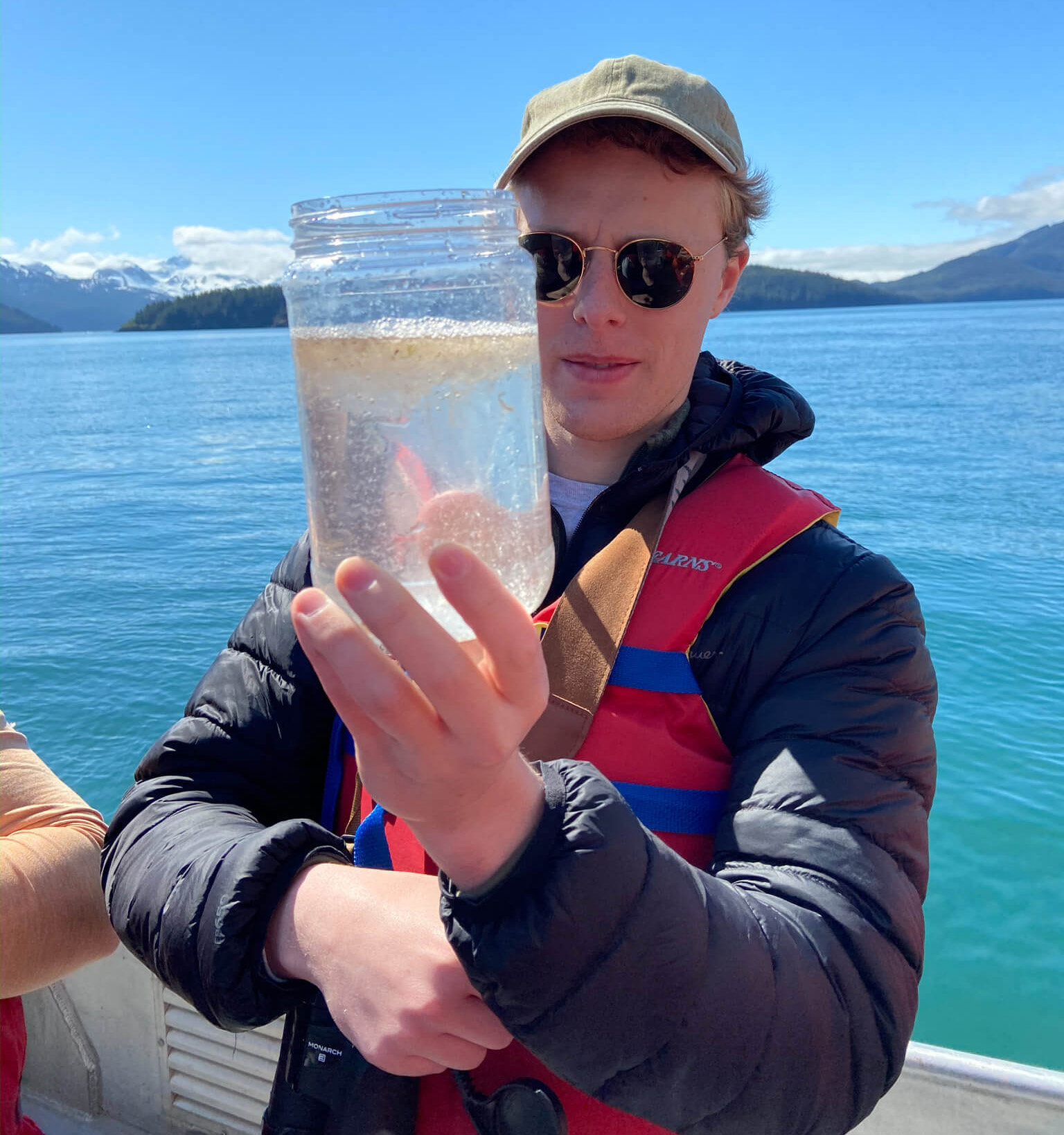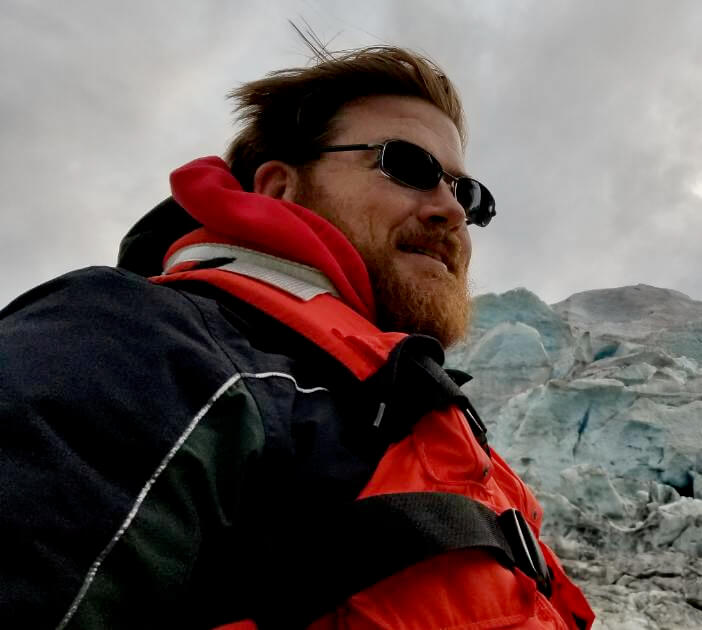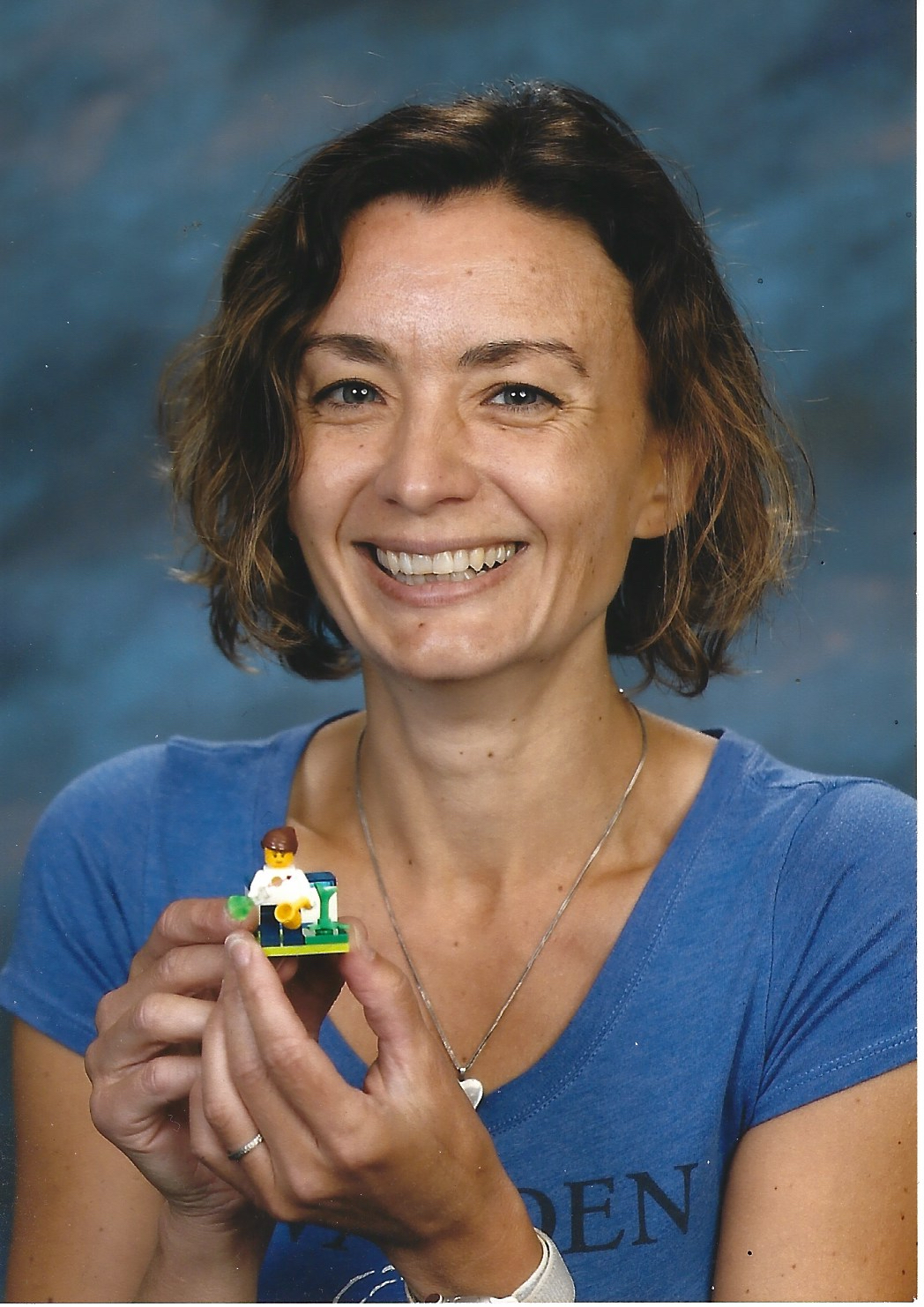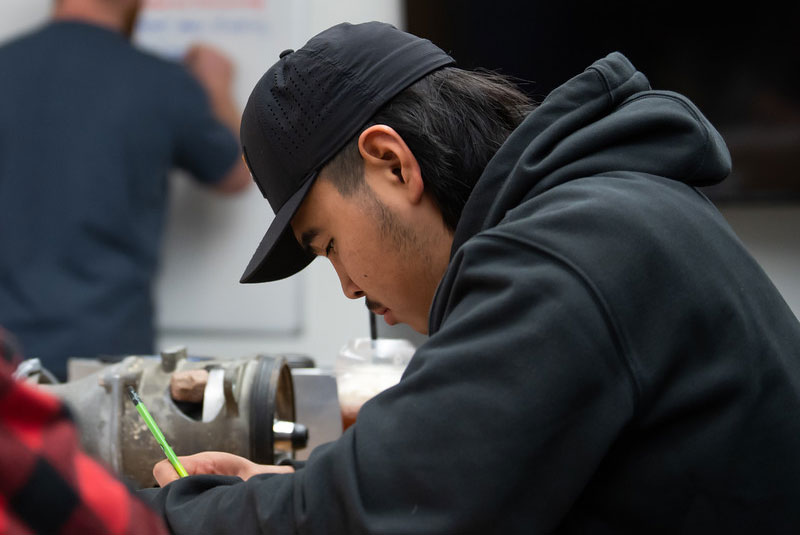Coastal Alaska Ecology for Teachers
Coastal Alaska Ecology For Teachers
- Intended for teachers of science who are not science teachers by training
- Based in Valdez, Alaska
- Students in this course will experience the wonders of the varied ecosystems from alpine tundra and coastal temperate forest to the intertidal and marine environments
- Develop student-centered, culturally-responsive knowledge, awareness, and practical skills.
Place-based activities may include:
- Climate science
- Fish hatchery tour
- Kayaking at Valdez Glacier
- Exploration of intertidal ecosystems
- Boat tour of Prince William Sound
- Introduction to drones in the classroom
Dates, Location, and Contact
Dates: August 6-12, 2023
Credits: 3
Seats Available: COURSE FULL!
Location: Valdez
Contact: Katie Bobowski, 907-822-3673 or ksbobowski@alaska.edu
Instructor: Bjørn Wolter/Cat Walker
Participants are Saying...
Each day was an adventure, and I learned so much about Alaskan ecosystems, indigenous knowledge, and science instruction. After an exhausting school year, this course was refreshing, energizing, and inspired me to think of many new ways to engage my students in pursuing science.
Stephen DeHart, Aleutians East Borough School District

- What to expect
Coastal Alaska Ecology for Teachers is primarily a field based course and we will be spending most days outside exploring different learning possibilities. Students should be able to walk at least 5 miles. Portions of the course may be carried out over uneven terrain, often without a trail, and may include river crossings or other hazards depending on route and travel logistics. The course may require good physical condition and ability to perform in cold and/or inclement weather. Students must be prepared to spend long days in potentially harsh terrain, with a number of environmental concerns to mitigate, including: bears, mosquitos, wolves, rivers, weather, temperature, etc.
- What will you getA content-rich week immersed in classroom and field exercises to deepen teaching pedagogy. Teachers will walk away with lesson plans, resources, tools how to fit the curriculum into a classroom or virtual learning environment, and examples of place-based lesson planning.
- Why should you come
- Piloted in 2019 every student said this was the best professional development they had ever had. Not only will you develop your teaching skills, you will forge friendships and share experiences that are unparalleled-even in Alaska.
- Gives teachers the ability to reconnect to and re-energize their passion for teaching.
- Mixes classroom activities with place-based/outdoor activities, which asks the teachers to not only consider their curriculum, but to also consider their classroom
- Collaborative workshop activities allow STEM teachers to meet and network with other educators who are living through the same experience
Meet The Instructors
Dr. Bjørn Wolter
 Dr. Bjørn Wolter is a program manager with the Alaska Department of Education & Early
Development. He has been a professor, researcher, and administrator in Alaska K-20+
education for more than two decades. Bjørn earned a Ph.D in Science Education from
Michigan State University, and an M.S. in Plant Ecology and B.S. in Biology from Western
Washington University.
Dr. Bjørn Wolter is a program manager with the Alaska Department of Education & Early
Development. He has been a professor, researcher, and administrator in Alaska K-20+
education for more than two decades. Bjørn earned a Ph.D in Science Education from
Michigan State University, and an M.S. in Plant Ecology and B.S. in Biology from Western
Washington University.
Cat Walker
 Catherine Walker (she/her) is the 2024 Alaska Teacher of the Year. She is a National
Board Certified Science Teacher, a 2023 Lindblad and National Geographic Grosvenor
Teacher Fellow, the 2023 National Science Teaching Association Shell Science Teaching
Awardee, the 2023 Alaska Marine Science Outreach Awardee, and was the Alaska Awardee
for the 2015 Presidential Award for Excellence in Math and Science Teaching. She is
also a National Geographic Certified Teacher. This summer she will complete an Earthwatch
Project Kindle Fellowship in Costa Rica on pollinators.
Catherine Walker (she/her) is the 2024 Alaska Teacher of the Year. She is a National
Board Certified Science Teacher, a 2023 Lindblad and National Geographic Grosvenor
Teacher Fellow, the 2023 National Science Teaching Association Shell Science Teaching
Awardee, the 2023 Alaska Marine Science Outreach Awardee, and was the Alaska Awardee
for the 2015 Presidential Award for Excellence in Math and Science Teaching. She is
also a National Geographic Certified Teacher. This summer she will complete an Earthwatch
Project Kindle Fellowship in Costa Rica on pollinators.
Catherine teaches Oceanography, Marine Biology, Unmanned Aviation Science, and PLTW Engineering Essentials at Dimond High in Anchorage. She recently completed the Advanced Aerial Education drone certification course and earned her FAA Remote Pilot Certification. She sponsors Battle of the Books, Ocean Club, Green Effects Club, and GSA.
Catherine was born in Sitka, Alaska, and graduated from Chugiak High School. She earned her B.S. in Biology from Brandeis University in Boston, Massachusetts, and her Master of Arts in Teaching from UAA. During college, she completed the Semester of Environmental Science Program at the Marine Biological Laboratory in Woods Hole, Massachusetts, interned at the New England Aquarium (feeding the penguins), and also volunteered as an EMT-B on campus. After college, she hiked over 1,000 miles on the Appalachian trail and then served as a Natural Resource Management Volunteer for the Peace Corps in Mali from 2002 through 2004.
Catherine and her husband Ben have two children, one dog, two axolotls, and one blue death-feigning beetle. She loves reading, running, gardening, spending time outdoors, and Lego.









